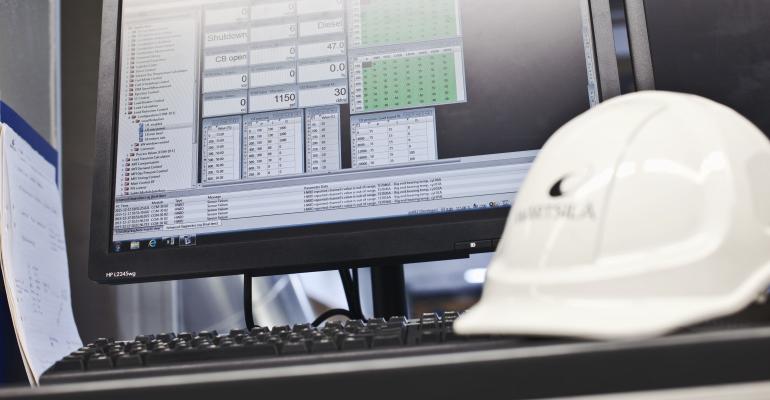The benefits of digital technologies improve with market penetration, and trust, ease of use and profitability are key to wider adoption, according to panellists at a Lloyd’s List digitalisation webinar.
Optimisation of operations takes masses of data, and improvement will need data on an industry scale, this is not something companies can do alone, said Pierre Guillemin, Vice President, Technology, Wärtsilä Voyage.
Leveraging AI and machine learning to improve performance holds promise, said Guillemin: “I think these are typically examples where as a group, as an ecosystem, we might be able to crack them together. If individual players are trying to solve it by themselves it’s going to be fairly difficult. We need to find ways to be able to trust one another.”
Expertise will be needed from outside of the industry, and companies must first be able to see that partners are working for mutual benefit and to solve tangible problems, not to steal away a digital ecosystem, said Guillemin.
Sven Brooks, Senior Director, IoT Business Development, KVH, said that adoption of technology and standards should be broader. Work by the Digital Container Shipping Association (DCSA) to adopt LoRa standards for container tracking should be extended to ship design and newbuilds so ships are launched with appropriate specifications to use digital technologies.
“These networks need to be wider than they already are. They need to cover vessels from the build stage through to recycling. We can do that best by looking to other fields and other industries,” said Brooks, identifying air transportation and ground transportation as sectors with relevant expertise to benefit the maritime industry.
“Ground transportation might not be as remote as shipping, but when you look at the sensors deployed on standard trucks and lorries to monitor freight—or the truck itself—that is something that we can gain a lot of knowledge and experience on and open to doors to really big players and welcome them to the maritime industry,” said Brooks.
From a tanker and dry bulk perspective, Søren Christian Meyer, Chief Executive, ZeroNorth saw the major blockers to digital improvement were enabling decision makers like charterers to make better decisions, and convincing users of digital platforms to share data.
ZeroNorth was spun out of Maersk Tankers, the world’s largest product tanker operator in the world, as even with over 220 vessels there wasn’t enough data, said Meyer; the data needed to be aggregated in a bigger forum and ZeroNorth now has access to data from 2,000 vessels, and so the data is more resilient.
“The pitfall here is an unwillingness to share [data], but you only want to share when you get more in return, and I think that’s what it’s all about, making sure that as soon as you share your data you get more value back,” said Meyer.
Demonstrating value in the maritime industry is a difficult thing, said Ioannis Martinos, Chief Executive, Signal Group, giving the example of the years it took to persuade the industry of the proven efficiency benefits and savings of the Mewis Duct.
“We need to be able to communicate better, tell the stories better, and prove better to the end recipients of our technology that there’s real value there,” said Martinos. Another pitfall to avoid is a bad user experience; hardware and software should be easy to adopt for companies and intuitive, with the benefits accessible without an excessive need for training.
Meyer raised the issue of shipowners often being unrewarded in the chater market for their efficiency and emissions reduction actions, and expressed a need for their to be tangible rewards in dollar terms for improving ships and operations.
Copyright © 2024. All rights reserved. Seatrade, a trading name of Informa Markets (UK) Limited.
Add Seatrade Maritime News to your Google News feed.  |

